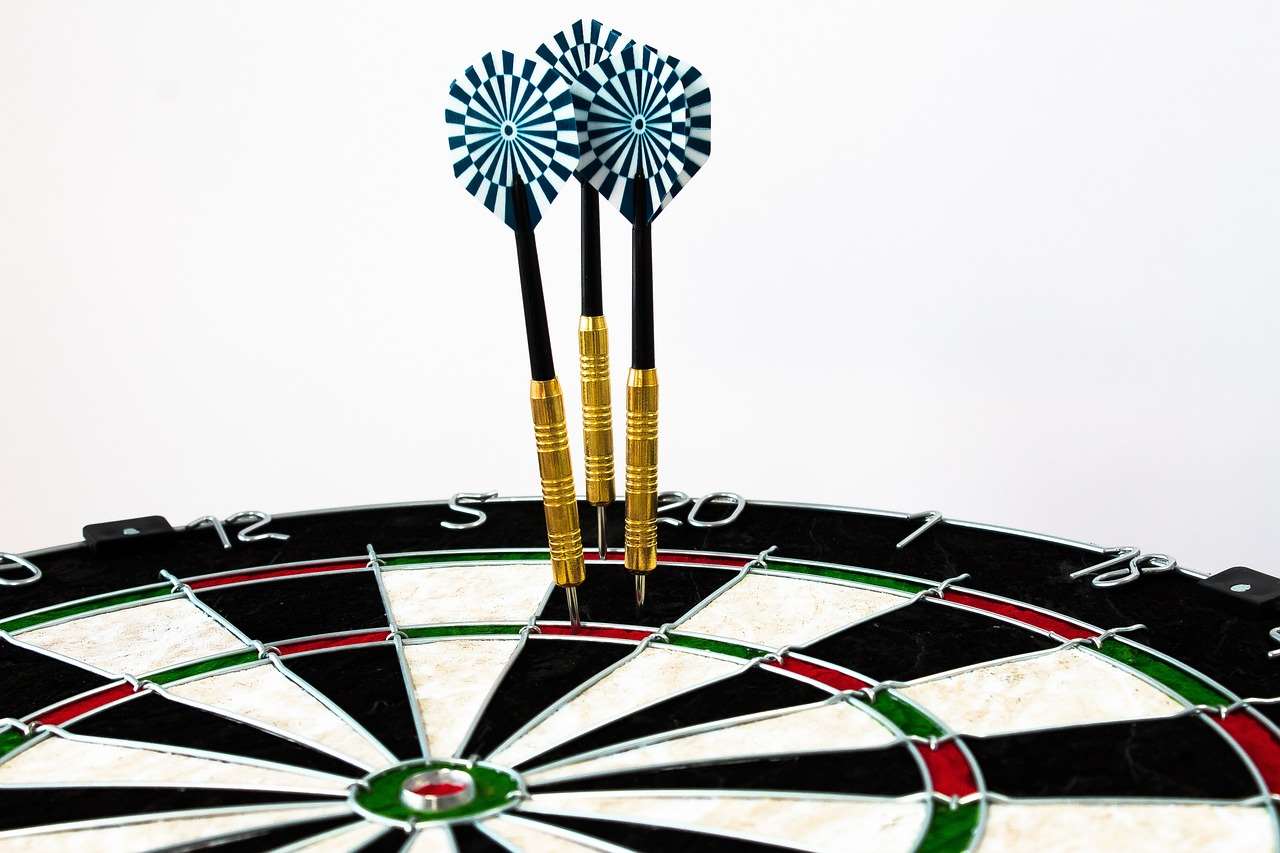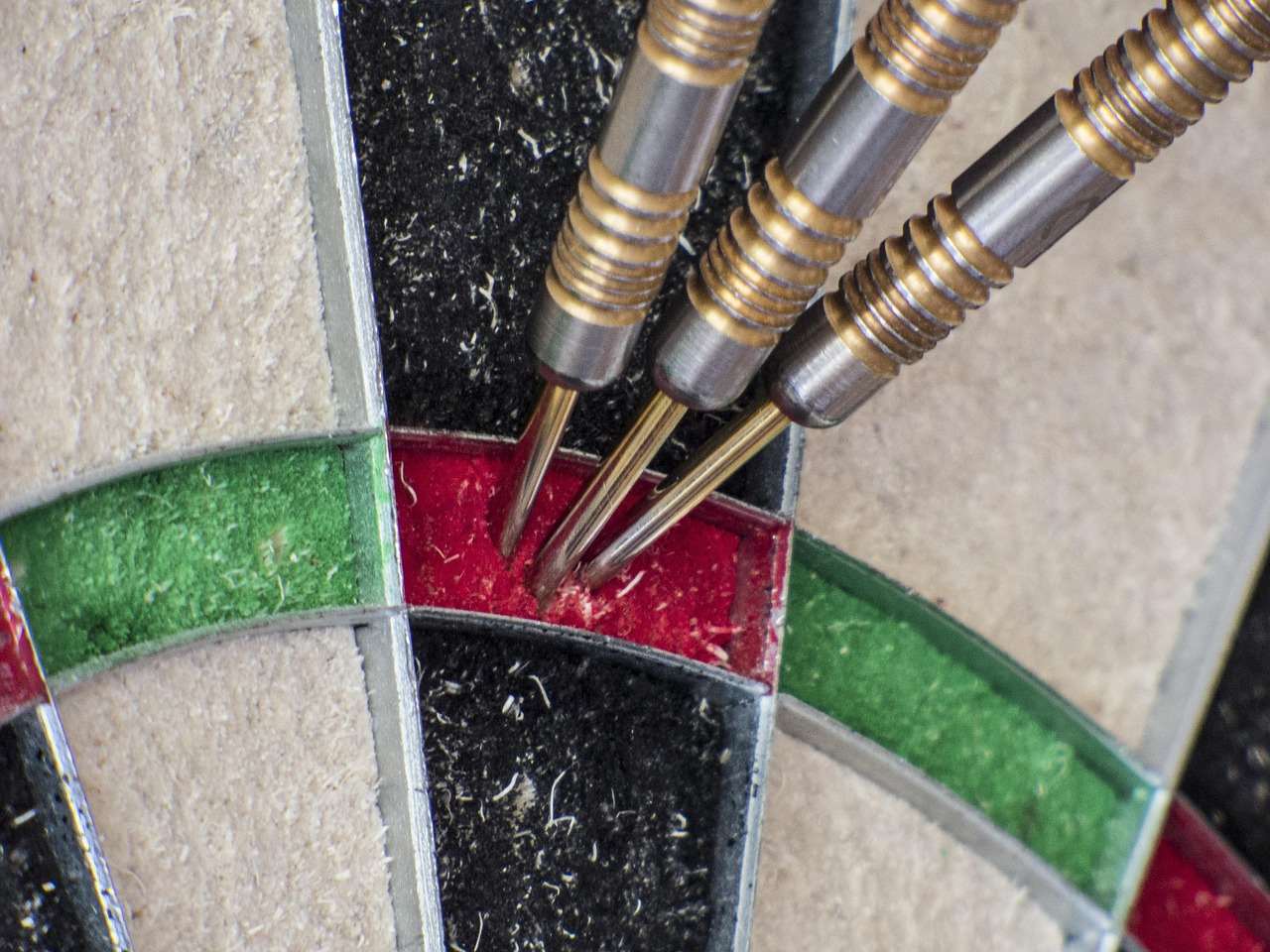Solid darts business financial planning is the cornerstone of any successful venture, whether you’re aiming to open a local darts bar or manage a professional darts league. This guide provides essential insights into creating a robust financial plan, covering everything from initial investment to long-term profitability, ensuring your darts business thrives. You’ll learn about budgeting, forecasting, revenue streams, and cost management.
⚠️ Still Using Pen & Paper (or a Chalkboard)?! ⚠️
Step into the future! The Dart Counter App handles all the scoring, suggests checkouts, and tracks your stats automatically. It's easier than you think!
Try the Smart Dart Counter App FREE!Ready for an upgrade? Click above!
Why is Darts Business Financial Planning Important?
Without meticulous darts business financial planning, even the most passionate darts enthusiast can find their venture struggling. A well-structured plan acts as your roadmap, guiding your decisions and allowing you to anticipate challenges and opportunities. This includes having a budget to work from and adhering to it. It’s about more than just hoping for the best; it’s about proactively shaping your business’s financial future.
Consider this: would you attempt a 180 without knowing the distance to the board or the force needed for a perfect throw? Similarly, launching a darts business without a clear financial strategy is a gamble. A solid plan will help you:
- Secure funding from investors or lenders.
- Manage your cash flow effectively.
- Make informed decisions about pricing, marketing, and expansion.
- Track your progress and identify areas for improvement.
- Minimize financial risks.

Creating Your Darts Business Financial Plan: A Step-by-Step Guide
Developing a comprehensive financial plan doesn’t have to be daunting. Here’s a breakdown of the key steps:
1. Define Your Business Model
Before crunching numbers, clarify your business model. Are you opening a dedicated darts bar? A sports bar with dartboards? An online retailer selling darts equipment? Each model has unique revenue streams and cost structures. Understanding your Business of Darts model is the first, most crucial step.
2. Estimate Start-up Costs
Compile a detailed list of all expenses required to launch your business. These may include:
- Rent or mortgage: Secure your location.
- Leasehold improvements: Renovations, dartboard installation, etc.
- Equipment: Dartboards, darts, scoreboards, point systems, seating, sound systems, point of sale (POS) system.
- Licenses and permits: Required legal documentation.
- Inventory: Darts, flights, shafts, accessories, food, beverages (if applicable).
- Marketing and advertising: Promoting your business.
- Insurance: Liability and property coverage.
- Working capital: Funds to cover initial operating expenses.
3. Project Revenue Streams
Identify all potential sources of income for your darts business:
- Dartboard rentals: Charge per hour or game.
- Food and beverage sales: If operating a bar or restaurant.
- Darts equipment sales: Offer a range of products for sale.
- League fees: If organizing darts leagues.
- Tournament entry fees: Host tournaments and charge entry fees.
- Sponsorships: Partner with local businesses.
- Merchandise sales: Sell branded apparel or accessories.
Estimate the revenue you expect to generate from each source. Be realistic and consider factors like location, competition, and seasonality. Research darts tv rights value to explore potential sponsorship opportunities.

4. Forecast Operating Expenses
Project your ongoing costs of running the business. These include:
- Rent or mortgage payments: Monthly costs of the property.
- Utilities: Electricity, water, gas.
- Salaries and wages: Employee compensation.
- Inventory costs: Replenishing stock.
- Marketing and advertising expenses: Ongoing promotion.
- Insurance premiums: Regular payments.
- Maintenance and repairs: Upkeep of equipment and property.
- Accounting and legal fees: Professional services.
5. Create a Profit and Loss (P&L) Statement
A P&L statement summarizes your revenues, expenses, and profits over a specific period (e.g., monthly, quarterly, annually). It provides a clear picture of your business’s profitability. Consider how how darts media deals work to understand potential revenue increases.
To create a P&L statement:
- Calculate your total revenue for the period.
- Calculate your total cost of goods sold (COGS) – the direct costs associated with producing your products or services.
- Subtract COGS from revenue to arrive at your gross profit.
- Subtract your operating expenses from gross profit to arrive at your net profit.
6. Develop a Cash Flow Statement
A cash flow statement tracks the movement of cash into and out of your business. It’s crucial for managing your liquidity and ensuring you have enough cash on hand to meet your obligations. It considers both cash inflows (money coming in) and cash outflows (money going out). Properly understanding **darts business financial planning** means grasping cash flow management.
7. Prepare a Balance Sheet
A balance sheet provides a snapshot of your business’s assets, liabilities, and equity at a specific point in time. It reflects the accounting equation: Assets = Liabilities + Equity. Assets are what your business owns (e.g., cash, equipment, inventory). Liabilities are what your business owes to others (e.g., loans, accounts payable). Equity represents the owners’ stake in the business.
8. Secure Funding (If Necessary)
If your start-up costs exceed your available funds, you’ll need to seek external funding. Options include:
- Loans: From banks or other financial institutions.
- Investors: Venture capitalists or angel investors.
- Grants: Government or private grants for small businesses.
- Crowdfunding: Raising funds from a large number of people online.
A compelling darts business financial planning document is essential for attracting investors or securing loans. Ensure your projections are realistic and well-supported. Considering the PDC Sky Sports deal worth is important for larger scale investments. The stronger your financial projections, the more likely you are to secure the funding you need.
Key Considerations for Darts Business Financial Planning
Beyond the basic steps, consider these key factors when developing your financial plan:
Pricing Strategy
Determine a pricing strategy that covers your costs and generates a profit. Consider your competition, target market, and the perceived value of your offerings. Factors that could impact prices include quality of equipment (boards, darts, scoreboards) and peak demand times.
Inventory Management
Efficient inventory management is crucial for controlling costs and minimizing waste. Track your inventory levels closely and order supplies in a timely manner. Be mindful of expiration dates for perishable items (if applicable). Also understanding darts broadcasting rights explained can affect profitability.
Marketing and Advertising
Allocate a budget for marketing and advertising to attract customers. Consider a mix of online and offline strategies, such as social media marketing, local advertising, and promotional events. Track the effectiveness of your campaigns to optimize your spending. Effective marketing and advertising is essential for creating and maintaining interest in your darts business.
Risk Management
Identify potential risks to your business and develop strategies to mitigate them. These risks may include economic downturns, increased competition, or changes in consumer preferences. You should explore options for both managing and reducing your identified risks.

Technology Adoption
Invest in technology to streamline your operations and improve efficiency. This may include a POS system, online ordering platform, or accounting software. Modern POS systems offer real-time reporting, which greatly assists with **darts business financial planning**. This in turn supports accurate tracking and enables better data-driven decisions.
Staff Training
Invest in training your staff to provide excellent customer service and ensure smooth operations. Well-trained staff can improve customer satisfaction, leading to repeat business and positive word-of-mouth referrals. Customer satisfaction is a huge key to success, as happy customers will visit and return to a friendly location with knowledgeable staff. Consider options and plans for properly training your staff in both customer service and product knowledge.
Dartboard Maintenance and Lifespan
An often-overlooked aspect of darts business financial planning is dartboard maintenance and the cost of replacing them. Regular rotation of the board and proper care can extend its lifespan. Plan for periodic replacements based on usage levels.
- Daily Rotation: Rotate the dartboard daily to evenly distribute wear and tear. This helps prevent specific areas from becoming overly worn.
- Proper Lighting: Ensure adequate lighting around the dartboard. This reduces strain on players’ eyes and promotes accuracy, minimizing accidental damage to the surrounding walls or board.
- Quality Darts: Invest in quality darts to prevent damage to the board. Darts with sharp, well-maintained points penetrate the sisal fibers cleanly, whereas dull or damaged points can tear the board.
- Regular Cleaning: Use a soft brush or cloth to remove loose debris from the dartboard surface. This prevents build-up that can affect dart penetration.

Regularly Review and Update Your Financial Plan
Your financial plan is not a static document. It should be reviewed and updated regularly to reflect changes in your business and the market. Adjust your projections based on actual performance and new information. Remember, negotiation darts tv rights and other media deals can dramatically alter your projections. Continuous evaluation and adjustment are key to keeping your business on track.
Conclusion
Effective darts business financial planning is essential for long-term success. By following the steps outlined in this guide, you can create a robust financial plan that will help you secure funding, manage your cash flow, and make informed decisions. Remember to regularly review and update your plan to adapt to changing market conditions and ensure your business remains on a path to profitability. Implement these strategies for effective darts business financial planning and consider investing in a financial consultant if you’re unsure of where to start. Explore your options for a darts business financial planning consultant today, and propel your darts business towards sustained success!
Hi, I’m Dieter, and I created Dartcounter (Dartcounterapp.com). My motivation wasn’t being a darts expert – quite the opposite! When I first started playing, I loved the game but found keeping accurate scores and tracking stats difficult and distracting.
I figured I couldn’t be the only one struggling with this. So, I decided to build a solution: an easy-to-use application that everyone, no matter their experience level, could use to manage scoring effortlessly.
My goal for Dartcounter was simple: let the app handle the numbers – the scoring, the averages, the stats, even checkout suggestions – so players could focus purely on their throw and enjoying the game. It began as a way to solve my own beginner’s problem, and I’m thrilled it has grown into a helpful tool for the wider darts community.